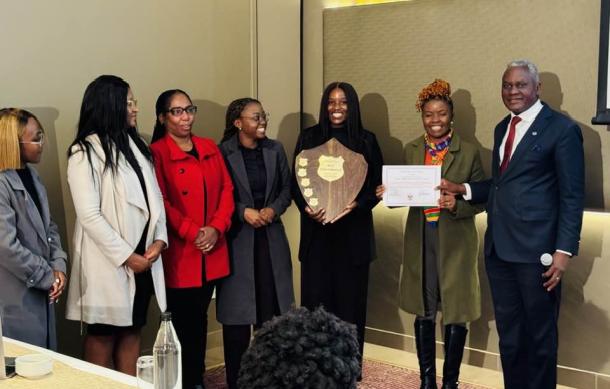
The Ministry of Health has made tremendous progress in the provision of pharmaceutical services, having improved access to medicine with 85 percent of essential items available at public facilities.
This was revealed by the Executive Director of Health and Social Services while delivering a speech on behalf of the Minister during the Annual National Pharmaceutical Services Forum in the capital.
Although the Health Ministry faces various challenges such as resource limitations, changing disease patterns, and regulatory hurdles, it is actively shaping the future of pharmaceutical services in the country.
One of its most recent achievements is the procurement of the HPV vaccine, which is a first for Namibia, signaling a major step forward in the fight against cervical cancer.
"This improvement reflects the sustained efforts made across various levels. The directory to pharmaceutical services implemented multiple procurement strategies in order to achieve the average availability that we are discussing. Initiating the processes of securing long-term contracts, I’m happy to report that especially regarding pharmaceuticals, following a long period of legal challenges for us to procure and secure long-term pharmaceutical contracts, that challenge is over now. The High Court has pronounced itself; we have delivered the victory."
The ministry has also finalized and approved its first-ever National Essential Clinical Supply List for the procurement and use of clinical supplies across all facilities.
The list, which is to be distributed nationwide, supports better planning and improves stock management.
"The quantification team at CMS, working closely with regional pharmacists and facility pharmacists, has continued to refine the national three-year quantification process, which is quite important for us to be data-based and to make evidence-based decisions that are demand-based so that we are able to address the demand versus supply or procurement issues, to minimize wastage while also addressing the needs at the facility level."
He encouraged the attending pharmacists not only to focus on reporting progress but to work together, openly and constructively, to identify solutions to challenges faced regarding pharmaceutical services.
The workshop coincided with an award ceremony for the best-performing regions and hospitals in the country.
The best-performing region was the Erongo region, followed by the Khomas region and Ohangwena region, respectively.
Katutura Hospital was the best-performing hospital, followed by Tsumeb District Hospital and then Windhoek Central Hospital.
The most improved region was the Hardap region, with the most improved facility being the Okongo District Hospital.
They each received a Certificate of Excellence.





